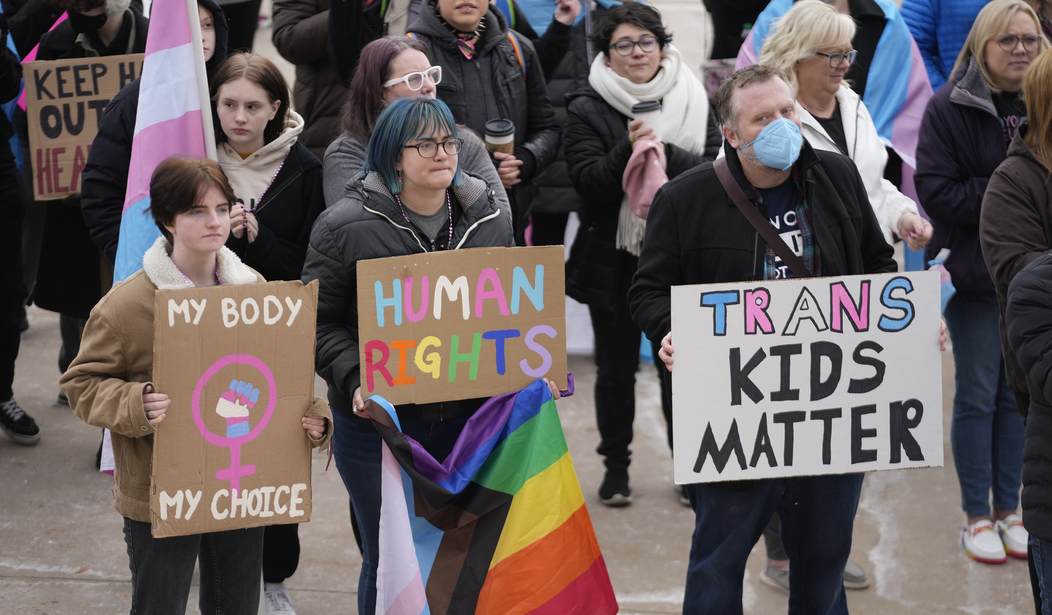A mother in Virginia is taking her daughter’s school and a Maryland public defender to court for concealing details about her child’s gender identity from her in a lawsuit that could result in a groundbreaking legal decision. Her attorneys argue that the concealment of this information ultimately led to her child becoming a victim of sex trafficking.
The outcome of the suit might set a significant precedent for parents seeking to hold educational institutions accountable for violating parental rights and concealing important information about students from their parents.
The lawsuit was filed last month and could become a pivotal moment in the battle for parental rights.
In August 2021, by concealing a teen’s newly asserted transgender identity from her parents, Virginia’s Appomattox County High School participated in a chain of events that led to that girl falling into the hands of sexual predators not once but twice.
When the FBI found Sage (last name withheld for privacy) in Maryland, where she was victimized by a sexual predator, a judge refused to return her to her parents on the grounds they were abusing her by not affirming her as male. Housed in the boys’ quarters of a children’s home away from her parents, she told her mother that she was assaulted again. The girl soon fled and then was brutally sex-trafficked again until her rescue in Texas by law enforcement.
This story prompted Virginia state lawmakers to introduce Sage’s Law, also known as the Child Protection Act, which is intended to prevent schools and other government officials from violating the rights of parents.
House Bill 2432 proposes amendments to the Code of Virginia related to minors and students who identify as a gender different from their biological sex, parental care, and counseling. It mandates that educators and members of school staff inform parents of students who are at imminent risk of suicide or identifying as the opposite gender.
The bill would also call for the Board of Education to develop guidelines to facilitate communication between the school and parents. It also would forbid school counselors, professional counselors, clinical social workers, or psychologists to encourage or compel minors to conceal information regarding their gender identity from their parents or withhold such information themselves.
At the heart of the issue is the school’s handling of the daughter’s gender identity. The complaint alleges that the school withheld critical information about the plaintiff’s child’s gender and also an assault that occurred in a boy’s bathroom. Not only did this jeopardize her daughter’s safety, but it also paved the way for further complications related to parental custody. By keeping the mother, Michele Blair, in the dark, the school essentially prevented her from getting help for her daughter.
Michele recalls finding a school hall pass labeled with a new name that August evening and Sage telling her for the first time that she was identifying as a boy at school. As Michele sat with her on the floor, Sage tried to stop the tears as she told her mother a group of male students had “jacked” her up against the wall of the boys’ bathroom and threatened her with violence, and that she was terrified of what they would do. Michele tried to comfort her, assuring her she could stay home while they figured out how to handle the bullying.
That night, Sage disappeared. She was found nine days later in Maryland, a victim of sexual assault. That was just the beginning of her family’s ordeal.
Even further, the public defender in Maryland falsely accused the mother of “misgendering” and abuse in a custody dispute, which resulted in the mother losing her daughter.
Michele had only found out about this claimed male identity the night her daughter disappeared. Yet Michele was willing to use any name or pronoun to bring her home. Sage later told her, Michele says, that Khan “told me to tell the judge my parents hit me, starved me.” Sage also told Michele that Khan “didn’t care how much [Sage] had to lie…but they were going to win this case” to remove Sage from her parents’ custody and place her in a Maryland foster home that would affirm her as male.
Later, a judge ordered that Sage would be housed according to her “expressed male gender.”
Instead of receiving treatment for her profound physical and emotional trauma, Sage was kept for days in solitary detention as a runaway, then transferred to the Catonsville Children’s Home. Per Judge Kershaw’s order, she was housed according to her “expressed male gender.” Michele says she eventually learned from Sage that she was the only girl in male quarters and that she had been repeatedly assaulted there.
If Michele wins her lawsuit against the school and public defender, it could open the door for more parents to have legal recourse if an institution brings about a situation similar to Sage’s or another harmful scenario by hiding important information from parents. It could present another avenue through which parents can protect their rights and that of their children.













